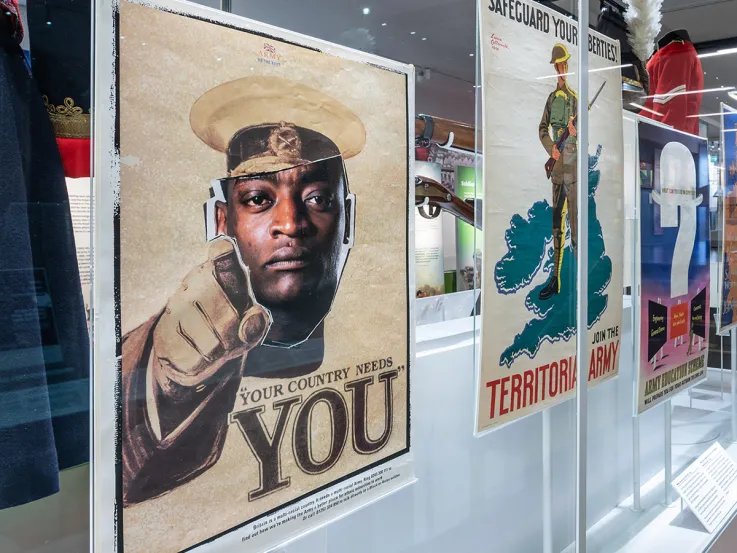Siborne Lecture: Clearing the Waterloo Battlefield
Captain William Siborne, c1830
Join us for the first annual Siborne Lecture, co-hosted by RUSI, to explore the history and culture of the Napoleonic Wars.
The Royal United Services Institute (RUSI) was founded in the aftermath of the Napoleonic Wars, quickly building an impressive museum collection, including the famous model of Waterloo created by William Siborne. Since its establishment in 1960, the National Army Museum has shared RUSI's mission to connect the public with the UK’s military heritage. It now cares for many objects from the original RUSI collection.
This year, we are excited to join forces to deliver the inaugural Siborne Lecture – a new annual event which will celebrate the intellectual partnership between our institutions. Our first lecture will showcase two researchers who will explore what happened to the bodies of soldiers killed during the Battle of Waterloo.
Generations of historians have tried to understand what has happened to the remains of the soldiers killed at the Battle of Waterloo. To date, only two complete skeletons have been recovered by archaeologists. The most common historiographical theory was that the bones, rich in phosphate, were crushed and used as fertilizer. Robin Schäfer will engage with history and archaeology to formulate an alternative theory. He makes the argument that the Belgian peasants working on the battlefield of Waterloo dug the bones of the fallen and sold them to the growing sugar industry, recently established in the Belgian province of Brabant in the 1830s. Robin and his research partner, Bernard Wilkin of the Belgian State Archives, also argue that the exploitation of human remains at Waterloo was just the tip of the iceberg in this gruesome process, and that several other Napoleonic battlefields were emptied of their dead soldiers and used by the food industry.
Professor Tony Pollard will follow to consider the process of battlefield clearance in the aftermath of Waterloo, including the disposal of the dead and the removal of artefacts. Civilians, rather than the military, carried out much of this work, while visitors to the battlefield soon appeared. Interaction between these early tourists and locals established an economic relationship, which included the sale of objects from the field and the provision of guiding services.
Some of these visitors wrote about their experiences, and these memoirs, one of which is soon to be published for the first time by the speaker, provide important insight into these processes, especially in the light of archaeological investigations carried out on the battlefield since 2015.
The work of veterans’ charity Waterloo Uncovered has done much to provide fresh perspectives on the battle and its aftermath through archaeological survey and excavation. Despite upwards of 20,000 men killed in the battle, confirmed grave sites on the field are incredibly rare. In discussing the work of Waterloo Uncovered, this talk will consider the reasons for this, including the theories presented by Robin.
About the speakers
Robin Schäfer
Robin Schäfer is a military historian specialising in the experience of the German soldier. His work seeks to investigate the human experience of war, with particular focus on the Napoleonic Wars and the First World War.
Robin co-founded the 'Iron Cross' magazine, regularly acts as a historical consultant for international media, and has co-produced documentaries for History Hit. Rob has written multiple articles and books, including his recent translation of Friedrich Sander’s war diaries in the book 'Blood, Dust and Snow: Diaries of a Panzer Commander in Germany and on the Eastern Front'.
Tony Pollard
Tony Pollard is Professor of Conflict History and Archaeology at the University of Glasgow, where he is based in the Scottish Centre for War Studies and Conflict Archaeology. His research interests range from 18th-century warfare to the archaeology of the 1982 Falklands War. (He is co-director of the Falklands War Mapping Project.)
Tony is also the academic lead and an archaeological director for Waterloo Uncovered, a charity which utilises archaeological fieldwork on the battlefield to support the recovery and wellbeing of veterans and serving personnel.






